Autumn has finally arrived, it is definitely here to stay.
Moody skies, blustery winds, cold temperatures in the mornings. This change of weather has become more prominent in the Picos de Europa. As we are driving up there, the wind gets more and more violent. Dora seems to be sweeping away. Strength to the wheel is needed to keep her straight. We may have problems climbing peaks now we are approaching winter.
We would like to repeat the Pyrenees experience where we climbed the three highest peaks. In hindsight, we are aware that this can not be possible, due to the weather conditions. Still we are hoping to do it.
We headed off to the office of Picos de Europa National Park, in Tamar, on the south face of the mountain range. We are hoping we will get all the information such as the weather forecast, the state of the mountain route, the quantity and quality of the snow, and the opening times of the refugios.
“The forecast for the next few days doesn’t look good” the guy said. He spends half an hour describing the route. I am incredibly frustrated as, in the end, he is not recommending us doing the route under those weather conditions. Such a waste of time!
So, what now? What should we do in Picos de Europa now that we are here? The Rio Cares trek, a route along a gorge. Apparently, a must if you are in the Picos de Europa, and not very technical.
The route starts in the village of Poncebos, located in the north face of the Picos. The path takes you through an impressive and fantastic gorge along the Rio that gives the trek its name.
The path is well-paved. Obviously, this is a very popular trek.
Spectacular view of the river. So powerful and noisy, it is used by the village of Poncebos to generate electricity.
A dam and a power station has been built just outside.
Typical landscapes of Picos de Europa, rugged, limestone mountains. This is why these mountains are ideal for rock climbers.
The river narrows disappearing underground to come up unexpectedly again with much more power and strength. Incredibly beautiful.
On the way down, the river delighted us with loud waterfalls.
The afternoon cleared to give way to a warm and crisp sunshine. The weather hadn’t been that bad after all. The guy at office of the Picos de Europa national park got it wrong. I wish I hadn’t listened to him…
A brave goat came to say hello to Gary.
Only when turning round the corner we found it had two more friends.
The brave goat didn’t seem to be particularly happy with its friends sharing the same piece of rock. It felt too crowded. To our amusement, it butted one of its friends down with its horns. This made us laugh. Animals are hilarious.
Nature has eroded the rocks forming bizarre and incredible landscapes, which we enjoyed all the way down.
We ended the trek in three and a half hours. One hour less than mentioned by the walking guide. We jumped into Dora and head to Gijon, a city located on the coast, north of Asturias and only two hours from Picos de Europa.
Before we left the Picos, I couldn’t avoid looking back at the mountains once more time.
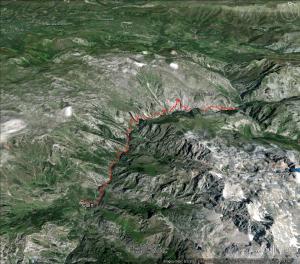
SM

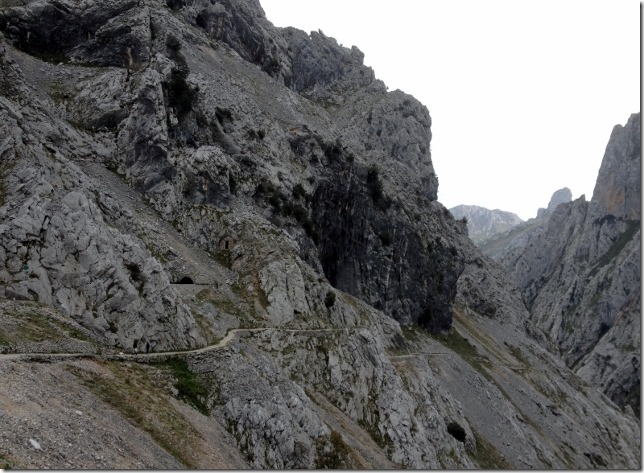
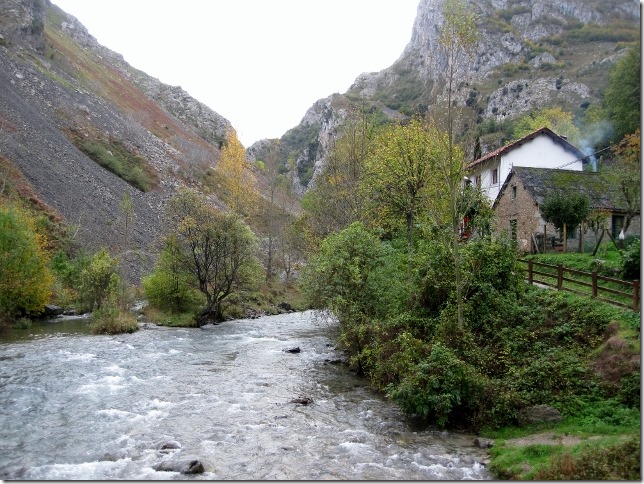
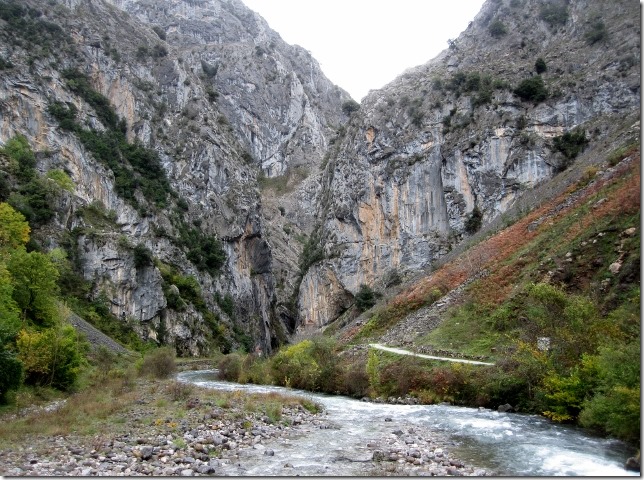
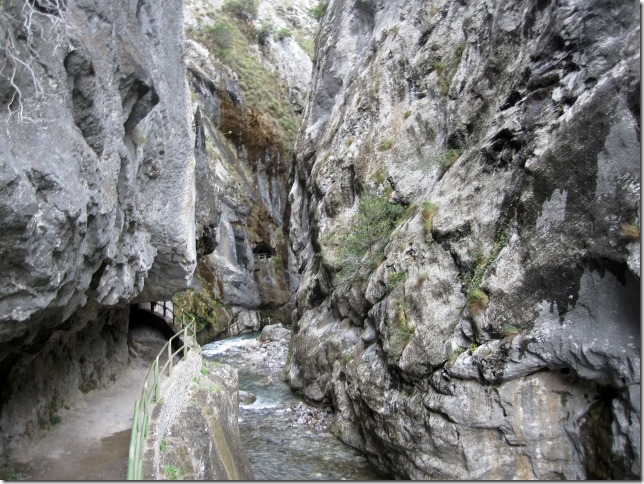
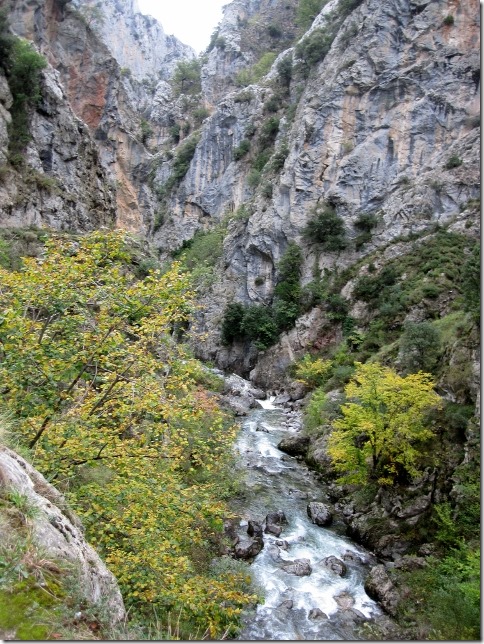
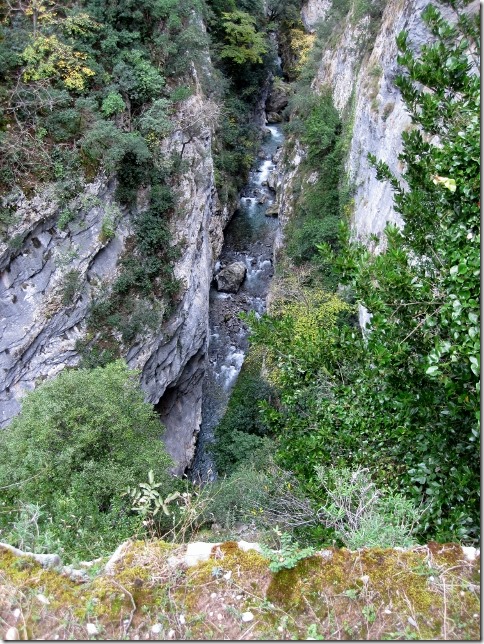
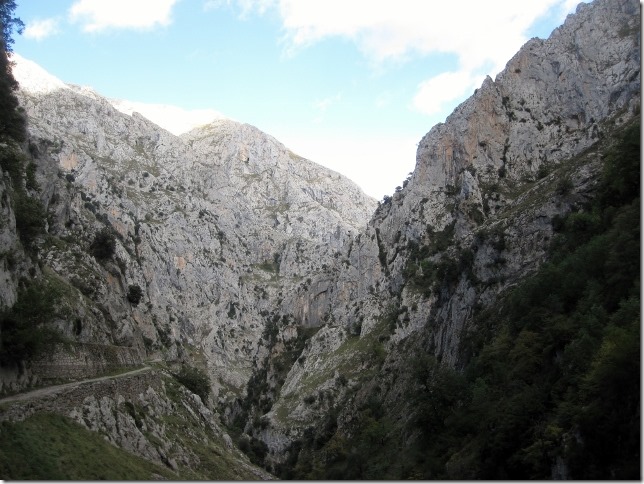
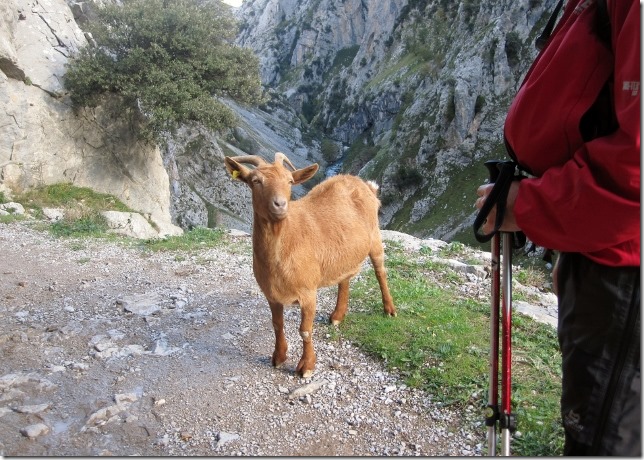
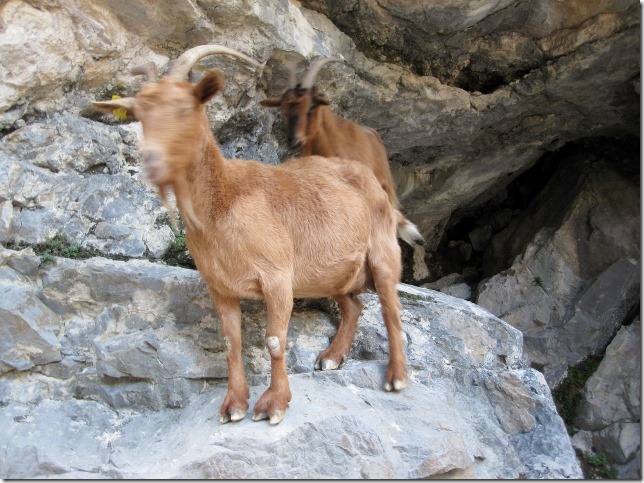

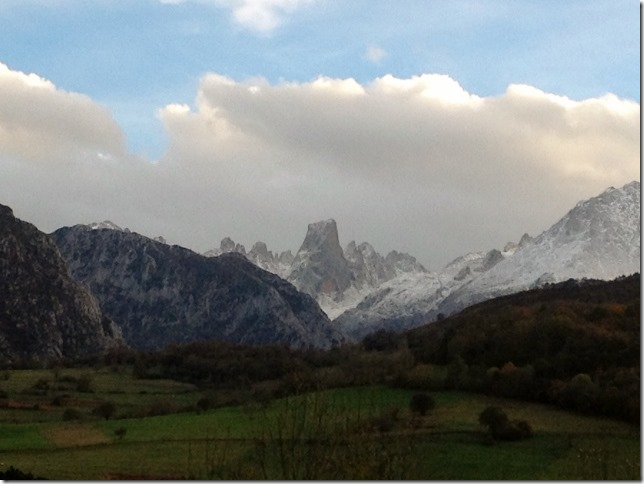






What a spectacular walk. Did you have to come back the same way or was it a circular walk. Are you heading off to Gisando soon and will you be there for Xmas? It must be getting chilly in Dora. We are still mild here but rather misty and wet. Love you.
Was a there and back this time, and very crowded for us and a bit gloomy weather. We have now reached Guisando and are relaxing a bit, doing lots of washing, but planning a walk in the hills in teh next day or two. Weather looking good and not too cold. Love to you all
Gary and Susana
Que maravilla de naturaleza, verdaderamente fascinante el valle.
nadie te supera en responder!